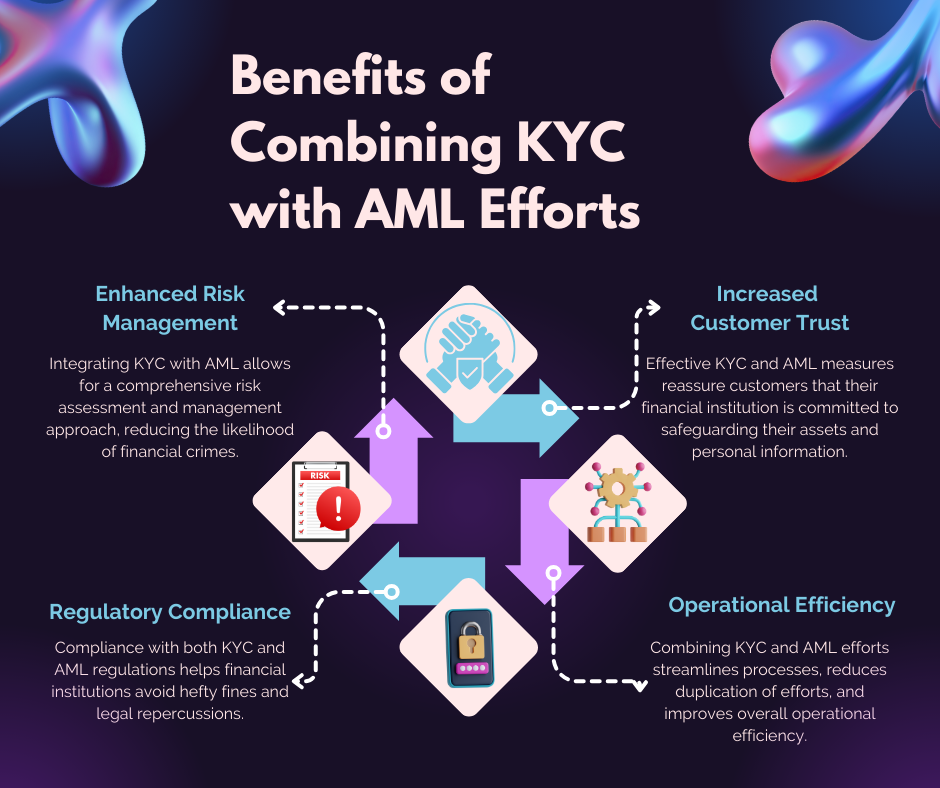Home > Columns > CRM Columns
The Role of KYC in Protecting Customers’ Financial Security
Contributed Article by Sandra Wheeler, Links Tribe
Know Your Customer (KYC) is a critical process employed by financial institutions to verify the identity of their clients.
This process ensures that businesses, especially those in the financial sector, can accurately identify and understand their customers, thereby preventing illegal activities such as money laundering and fraud.

Photo by Andrea Piacquadio:
https://www.pexels.com/photo/cheerful-couple-making-online-purchases-at-home-3756345/
KYC involves collecting and analyzing a customer’s personal
information, such as identification documents and financial activities, to
assess potential risks.
Financial security is paramount for customers, as it
safeguards their assets and personal information from unauthorized access and
fraudulent activities. The increasing sophistication of financial crimes
necessitates robust measures to protect customer data and transactions.
Implementing effective KYC procedures is one of the primary
ways financial institutions can ensure the financial security of their clients,
fostering trust and confidence in the financial system.
What is KYC?
KYC is a regulatory and legal requirement for financial
institutions to identify and verify the identities of their customers.
The process involves obtaining and verifying information
such as the customer's name, date of birth, address, and identification
number.
The primary goal of KYC is to ensure that financial
institutions know who their customers are, understand the nature of their
activities, and assess the risk of illegal intentions.
Key Components and Processes Involved in KYC
- Customer Identification Program (CIP): This involves collecting basic identification information from the customer and verifying its
authenticity using reliable and independent sources.
- Customer Due Diligence (CDD): CDD includes evaluating the
customer's risk profile based on their financial activities and transaction
patterns. It also involves ongoing monitoring to detect and report suspicious
activities.
- Enhanced Due Diligence (EDD): For customers who present a
higher risk, additional information and verification steps are required. This
might include more detailed background checks and closer scrutiny of their financial
activities.
- Ongoing Monitoring and Reporting: Financial institutions
must continuously monitor their customers' transactions to identify any unusual
or suspicious activities. They are required to report such activities to
regulatory authorities.
Importance of KYC in Financial Security
KYC processes play a vital role in protecting customers from
fraud and financial crimes by ensuring that financial institutions can identify
and prevent potentially fraudulent activities.

Photo by Clay Banks on Unsplash
By verifying the identity of customers and monitoring their
transactions, KYC helps detect and prevent identity theft, money laundering,
and other illegal activities.
This not only protects individual customers but also
maintains the integrity of the financial system as a whole.
Examples of potential risks mitigated by KYC:
- Identity Theft: KYC processes verify the authenticity of a
customer's identity, making it difficult for fraudsters to open accounts or
conduct transactions under false pretenses.
- Money Laundering: By understanding a customer's financial
activities, KYC helps detect unusual transaction patterns that may indicate
money laundering.
- Terrorist Financing: KYC procedures ensure that financial
institutions do not unwittingly provide services to individuals or
organizations involved in terrorist activities.
- Fraudulent Transactions: Ongoing monitoring and analysis of
transaction patterns help detect and prevent fraudulent activities, protecting
both customers and the financial institution.
KYC and AML Programs
Anti-Money Laundering (AML) programs are designed to detect,
prevent, and report money laundering activities within financial
institutions.
These programs involve a set of regulations, procedures, and
controls aimed at identifying and mitigating the risk of illicit financial
activities.
AML programs require financial institutions to monitor
customer transactions, report suspicious activities, and maintain records for
regulatory authorities.
How KYC Integrates with AML to Enhance Financial Security
KYC is a fundamental component of AML programs. By accurately identifying and verifying the
identity of customers, KYC provides the foundational data necessary for
effective AML efforts. The integration of KYC and AML involves:
- Customer Risk Profiling: KYC processes help create detailed
customer profiles, which are essential for assessing risk levels and
identifying potentially suspicious activities.
- Transaction Monitoring: AML programs utilize the data
collected through KYC to monitor transactions in real-time, flagging any
activities that deviate from the customer’s normal behavior.
- Reporting and Compliance: KYC ensures that financial
institutions have the necessary information to comply with AML reporting
requirements, such as filing Suspicious Activity Reports (SARs).

Challenges and Solutions in Implementing KYC
Common Challenges Faced by Financial Institutions in KYC
Implementation
Financial institutions face several challenges in
implementing effective KYC procedures. One major challenge is data management,
as collecting, storing, and managing large volumes of customer data can be
particularly difficult for institutions with a large customer base.
Another significant issue is customer experience; stringent
KYC procedures can lead to a cumbersome onboarding process, potentially
affecting customer satisfaction and retention.
Keeping up with constantly evolving regulatory requirements
is challenging and resource-intensive for these institutions.
Technological Solutions and Best Practices to Overcome These
Challenges
To address these challenges, financial institutions can
utilize advanced data analytics and machine learning to manage and analyze
large datasets more efficiently, identifying patterns and anomalies indicative
of fraudulent activities.
Implementing digital KYC solutions, such as eKYC (electronic
Know Your Customer), can streamline the onboarding process, making it faster
and more convenient for customers while ensuring compliance.
Regulatory technology (RegTech) solutions can help
institutions stay up-to-date with regulatory changes, automate compliance
processes, and reduce the risk of non-compliance.
Regulatory Requirements and Compliance
Global regulatory bodies have established stringent KYC
requirements to combat financial crimes and protect the integrity of the
financial system. Key regulations include:
- USA PATRIOT Act (USA): Mandates that financial institutions
implement robust KYC procedures to verify the identity of their customers and
monitor transactions.
- 4th and 5th Anti-Money Laundering Directives (EU): Require
member states to implement comprehensive KYC measures and reporting obligations
to prevent money laundering and terrorist financing.
- FATF Recommendations: The Financial Action Task Force (FATF)
sets international standards for combating money laundering and terrorist
financing, including detailed KYC guidelines.
The Role of Compliance in Ensuring Effective KYC Practices
Compliance with regulatory requirements is essential for
effective KYC practices. Financial institutions must:
- Develop Comprehensive Policies: Establish clear and
comprehensive KYC policies and procedures that comply with regulatory
requirements.
- Regular Training: Provide regular training to employees to
ensure they understand and can effectively implement KYC procedures.
- Continuous Monitoring and Auditing: Implement continuous
monitoring and regular audits to ensure KYC practices remain effective and
compliant with evolving regulations.
- Collaboration with Regulatory Bodies: Maintain open
communication with regulatory authorities to stay informed about changes in
regulations and best practices.
Future of KYC in Financial Security
The future of KYC is being shaped by several emerging trends
and technologies that promise to enhance its effectiveness and efficiency:
- Artificial Intelligence (AI) and Machine Learning (ML): AI
and ML are being increasingly utilized to analyze vast amounts of data quickly,
identifying patterns and anomalies that might indicate fraudulent activity.
These technologies can improve the accuracy and speed of customer identity
verification.

- Blockchain Technology: Blockchain offers a secure,
transparent, and immutable way to store and share customer information. This
can enhance the security of KYC data and streamline the verification process
across different institutions.
- Biometric Verification: The use of biometric data, such as
fingerprints, facial recognition, and iris scans, is becoming more prevalent in
KYC processes. Biometrics provide a higher level of security and are harder to
fake compared to traditional identification methods.
- Digital Identity Platforms: Digital identity solutions are
being developed to create a unified and secure way for individuals to verify
their identities online. These platforms can simplify KYC processes and reduce
the need for repeated verifications across different services.
As financial crimes become more sophisticated, the role of
KYC in protecting financial security will continue to evolve. The integration
of advanced technologies will make KYC processes more efficient, accurate, and
secure.
Financial institutions will need to stay ahead of these
advancements to protect their customers effectively. The future of KYC will
likely see greater collaboration between financial institutions and regulatory
bodies to ensure that KYC practices are robust and adaptable to new threats.
The continuous development of global standards and best
practices will help harmonize KYC procedures worldwide, making it easier to
combat financial crimes on a global scale.
As the digital economy grows, the importance of secure and
efficient KYC processes will only increase, playing a crucial role in
maintaining trust and security in the financial system.
Blockchain Technology: Blockchain offers a secure,
transparent, and immutable way to store and share customer information. This
can enhance the security of KYC data and streamline the verification process
across different institutions.
Biometric Verification: The use of biometric data, such as
fingerprints, facial recognition, and iris scans, is becoming more prevalent in
KYC processes. Biometrics provide a higher level of security and are harder to
fake compared to traditional identification methods.
Digital Identity Platforms: Digital identity solutions are
being developed to create a unified and secure way for individuals to verify
their identities online. These platforms can simplify KYC processes and reduce
the need for repeated verifications across different services.
As financial crimes become more sophisticated, the role of
KYC in protecting financial security will continue to evolve. The integration
of advanced technologies will make KYC processes more efficient, accurate, and
secure.
Financial institutions will need to stay ahead of these
advancements to protect their customers effectively. The future of KYC will
likely see greater collaboration between financial institutions and regulatory
bodies to ensure that KYC practices are robust and adaptable to new threats.
The continuous development of global standards and best
practices will help harmonize KYC procedures worldwide, making it easier to
combat financial crimes on a global scale.
As the digital economy grows, the importance of secure and
efficient KYC processes will only increase, playing a crucial role in
maintaining trust and security in the financial system.